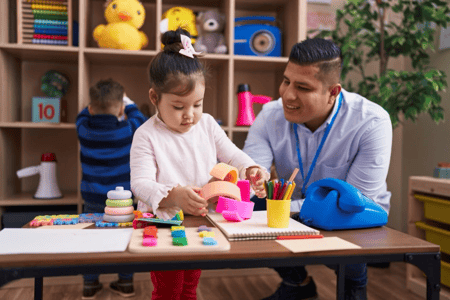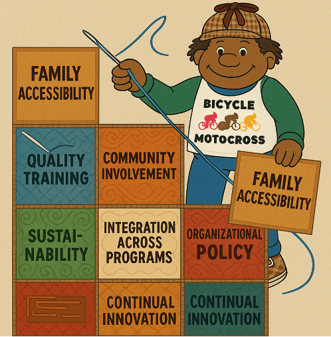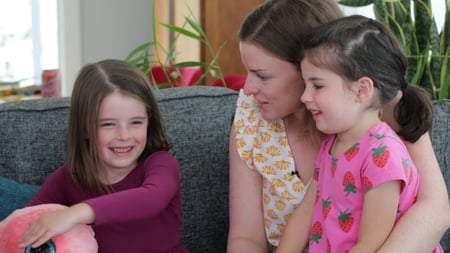How the Well-Baby Program Supports Healthy Child Development

Check out our blog for social-emotional learning articles, news, and more!
 Families of 97 children with early-onset conduct problems, 4 to 8 years old, were randomly assigned to 1 of 4 conditions: a parent training treatment group (PT), a child training group (CT), a combined child and parent training group (CT + PT), or a waiting-list control group (CON). Post treatment assessments indicated that all 3 treatment conditions had resulted in significant improvements in comparison with controls. Comparisons of the 3 treatment conditions indicated that CT and CT + PT children showed significant improvements in problem solving as well as conflict management skills, as measured by observations of their interactions with a best friend; differences among treatment conditions on these measures consistently favored the CT condition over the PT condition. As for parent and child behavior at home, PT and CT + PT parents and children had significantly more positive interactions, compared with CT parents and children. One-year follow-up assessments indicated that all the significant changes noted immediately post treatment had been maintained over time. Moreover, child conduct problems at home had significantly lessened over time. Analyses of the clinical significance of the results suggested that the combined CT + PT conditions produced the most significant improvements in child behavior at 1-year follow-up.
Families of 97 children with early-onset conduct problems, 4 to 8 years old, were randomly assigned to 1 of 4 conditions: a parent training treatment group (PT), a child training group (CT), a combined child and parent training group (CT + PT), or a waiting-list control group (CON). Post treatment assessments indicated that all 3 treatment conditions had resulted in significant improvements in comparison with controls. Comparisons of the 3 treatment conditions indicated that CT and CT + PT children showed significant improvements in problem solving as well as conflict management skills, as measured by observations of their interactions with a best friend; differences among treatment conditions on these measures consistently favored the CT condition over the PT condition. As for parent and child behavior at home, PT and CT + PT parents and children had significantly more positive interactions, compared with CT parents and children. One-year follow-up assessments indicated that all the significant changes noted immediately post treatment had been maintained over time. Moreover, child conduct problems at home had significantly lessened over time. Analyses of the clinical significance of the results suggested that the combined CT + PT conditions produced the most significant improvements in child behavior at 1-year follow-up.
 As has become all too evident to researchers in the field as well as to the general public, the incidence of conduct problems in young children is increasing. Current estimates are that 7% to 25% of children are affected. This trend is disturbing, both in itself and in its social implications, for research has shown that the emergence of early-onset conduct problems in young children (in the form of high rates of oppositional defiant, aggressive, and noncompliant behaviors) is related to a variety of health and behavioral problems in adolescence - peer rejection, drug abuse, depression, juvenile delinquency, and school dropout (Campbell, 1991; Loeber, 1991).
As has become all too evident to researchers in the field as well as to the general public, the incidence of conduct problems in young children is increasing. Current estimates are that 7% to 25% of children are affected. This trend is disturbing, both in itself and in its social implications, for research has shown that the emergence of early-onset conduct problems in young children (in the form of high rates of oppositional defiant, aggressive, and noncompliant behaviors) is related to a variety of health and behavioral problems in adolescence - peer rejection, drug abuse, depression, juvenile delinquency, and school dropout (Campbell, 1991; Loeber, 1991).
In response to this growing social problem, a variety of innovative parent training interventions have been designed with the aim of reducing children's conduct problems. The rationale for targeting parenting behavior as the primary focus of intervention arises from the considerable body of research indicating that parents of children diagnosed with oppositional defiant disorder (ODD) or conduct disorder (CD) lack certain fundamental parenting skills.





